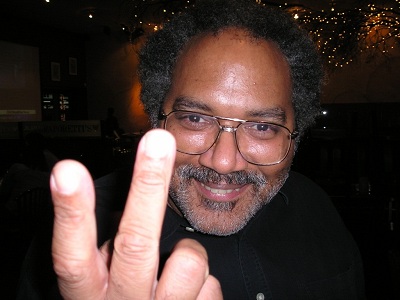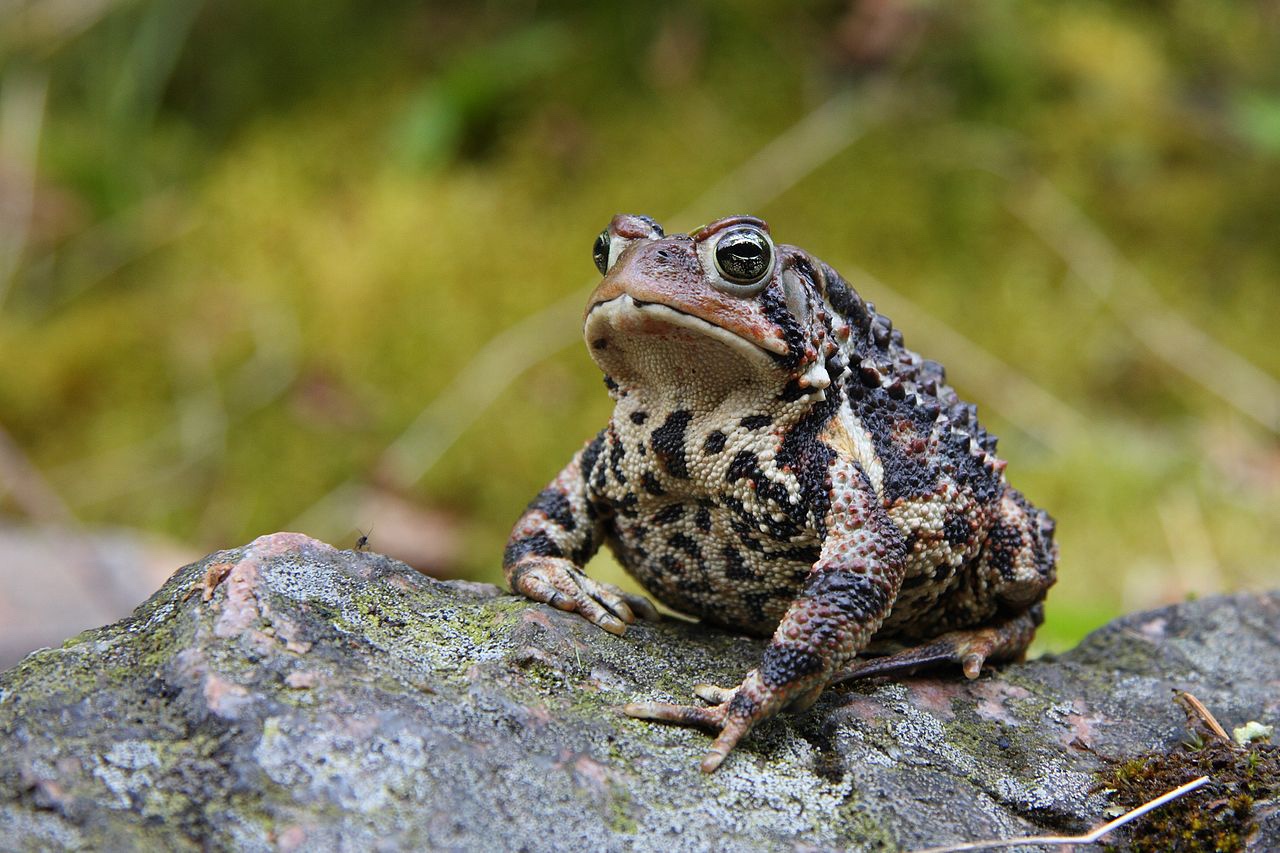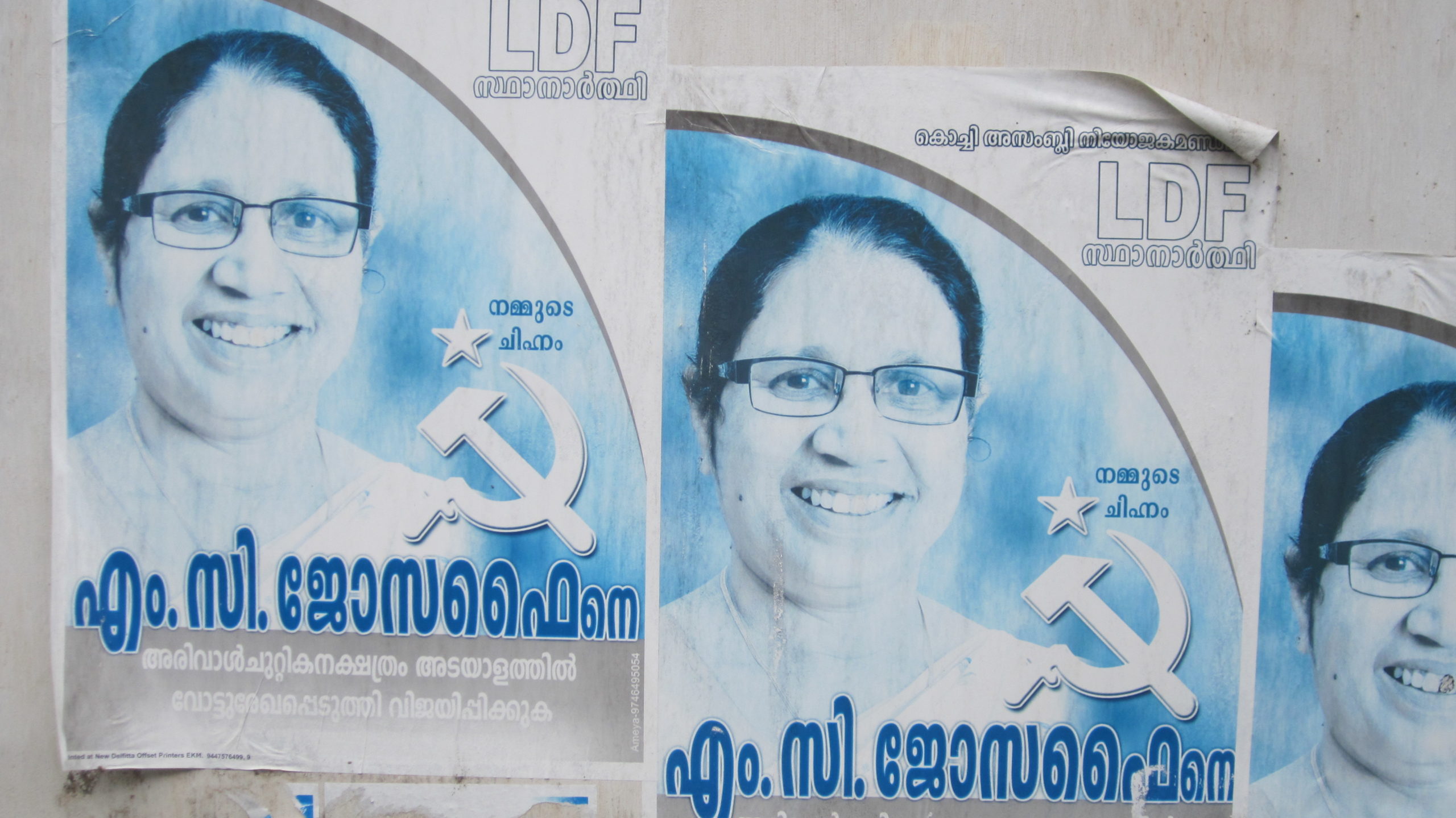
Kerala: Judaism, Communism
Mattanchery in Kochi’s western district is a popular tourist destination notable for its eclectic blend of historical sites and bazaars. One of its most famous neighborhoods is an area called “Jew Town,” so named in honor of the Paradesi Synagogue, a rare Indian-Jewish shrine erected in 1568 by a community of Sephardi Jews who fled the Iberian Peninsula during the Inquisition.
They were not the first Jews to inhabit southern India. The earliest settlements occurred along India’s Malabar coast around 70 CE, an exodus driven by the fall of the Second Temple of Jerusalem. As this region became increasingly important to the European spice trade in the 16th and 17th centuries, it invited conquests by both the Portuguese and Dutch before finally returning to Indian hands. As the Jewish communities struggled to adapt to their various rulers, tensions rose between the newer Sephardic population, the Paradesi (“foreigner”) Jews, and their indigenous counterparts, the Malabari Jews. In 1948, most of the remaining Judaic population emigrated to the new state of Israel.
Today there are less than ten Jewish families living in Kochi. The Synagogue, apart from being a museum, is only officially used on Jewish holidays. The surrounding neighborhood is now a popular shopping district.
For a complete history on the Cochin Jews, please visit this site: http://bethaderech.com/cochini-jews-malabar-jews/
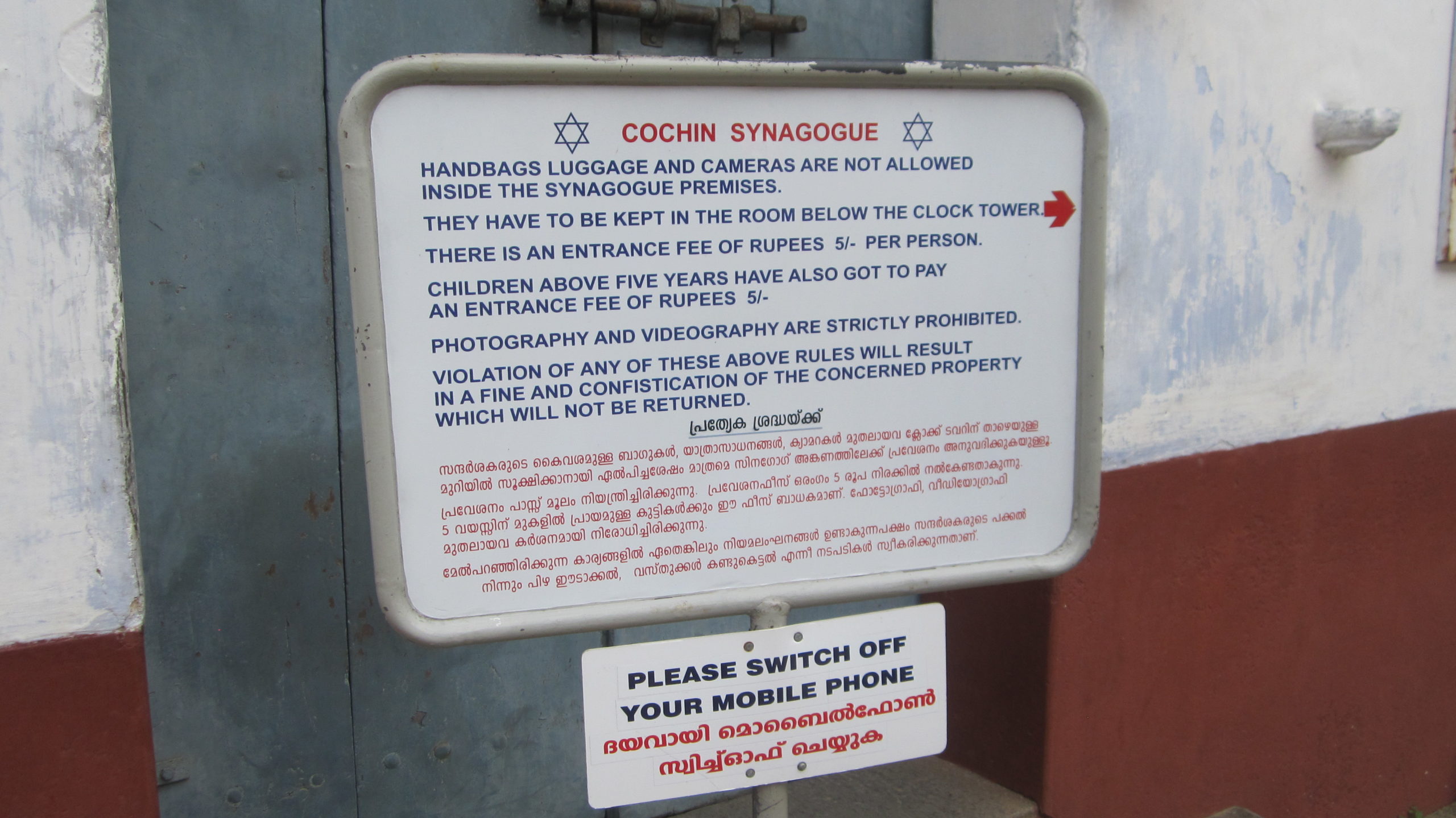
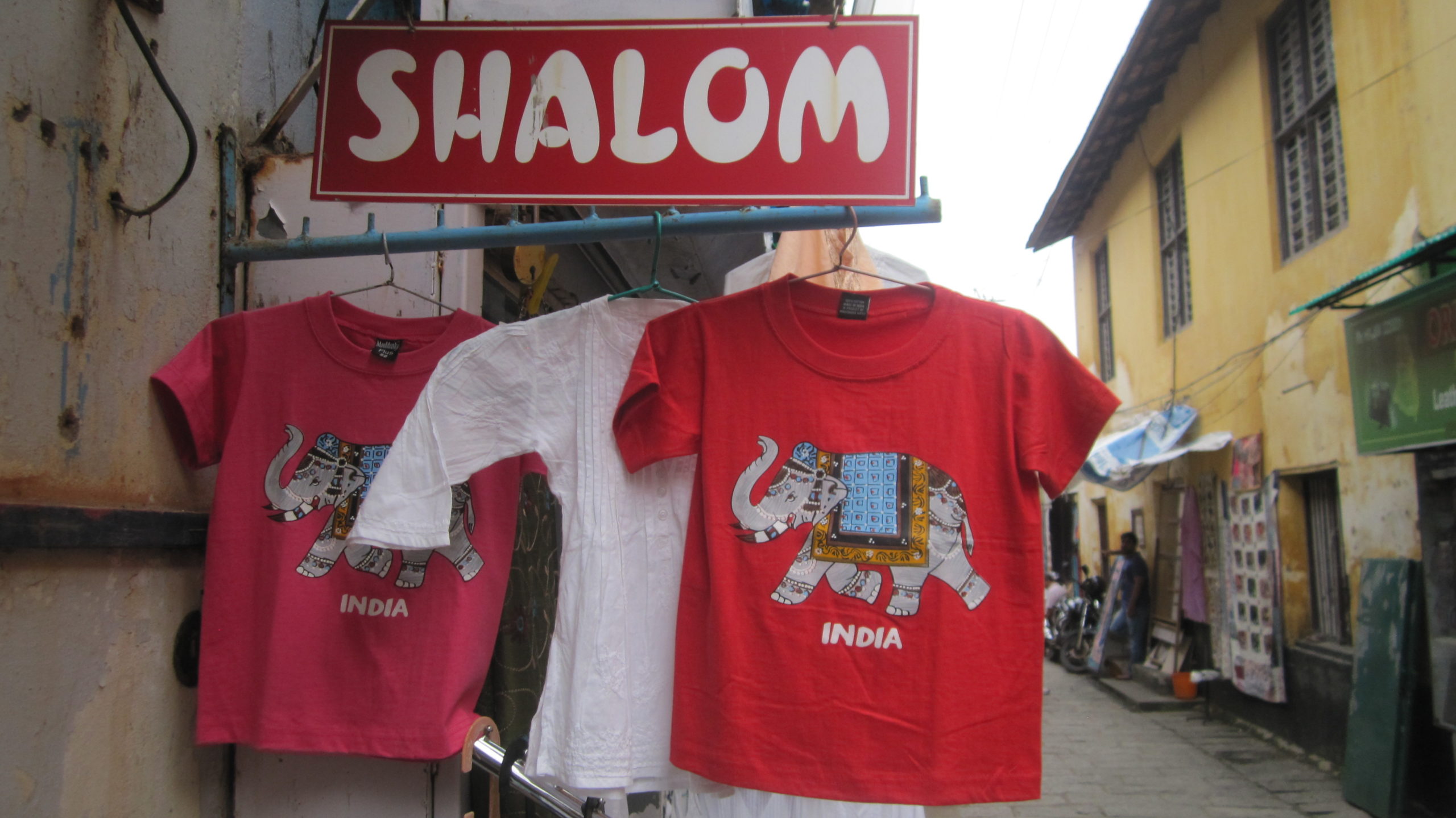
In this neighborhood, there’s one shop sign whose imagery at first glance is quite disturbing. But what it really reveals is how intertwined the religions in India have become. The Hindu Swastik, a symbol of Shakti that literally means “to be good,” is hard to process in light of its horrendous misuse by the Nazis. Yet you’ll find it all over India. Still, to see it paired with the name of this Jewish district in Mattancherry is rather unnerving.
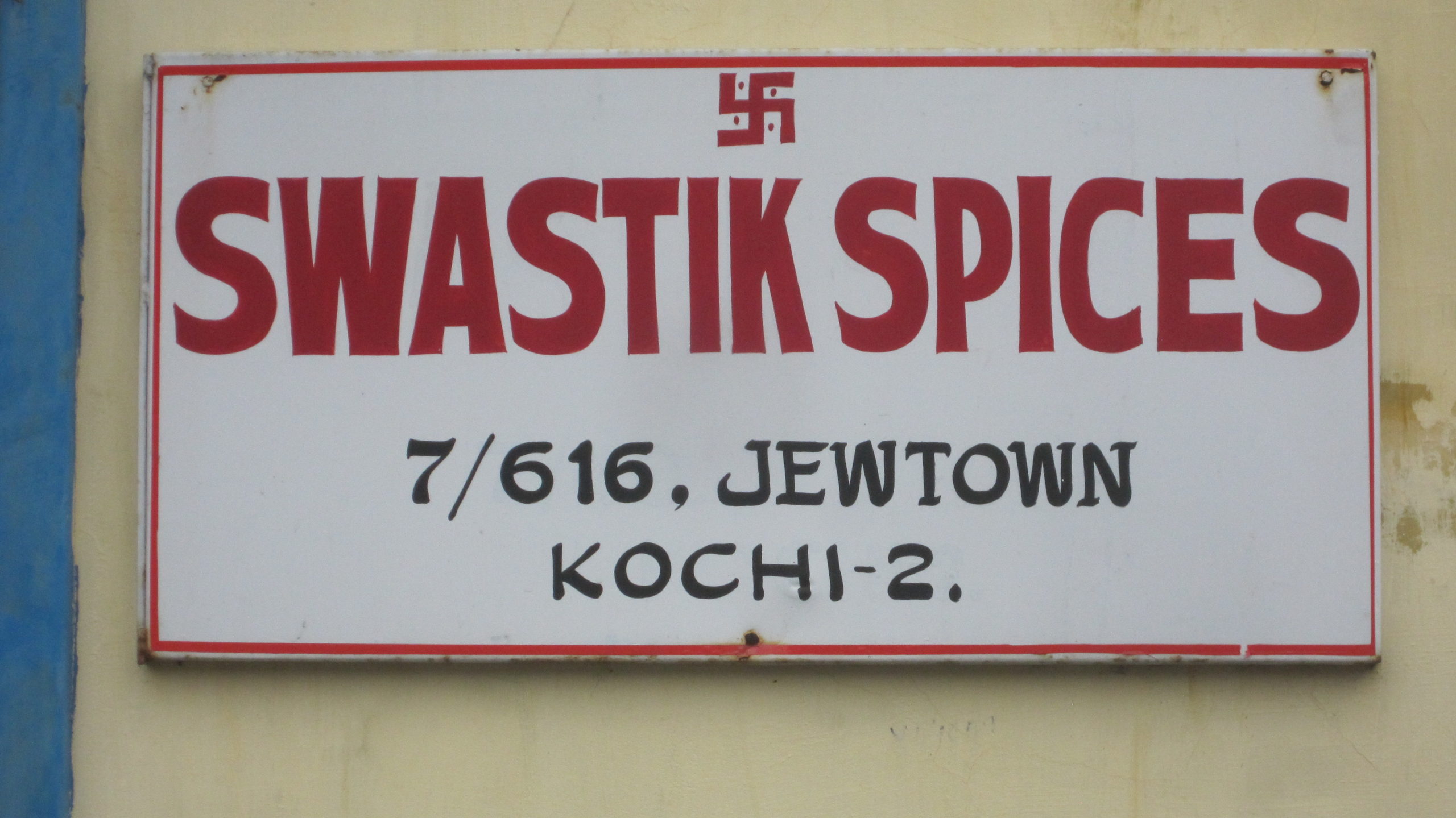
***
Another aspect of Kerala that defies Indian stereotypes is the persistence of communism. Marxist ideas took hold in Kerala during the 20’s as a reaction to colonial rule but also as a way to empower laborers there–communism disregarded the caste system. By 1957 Kerala became the first state in the world to democratically elect a communist government. Communist leaders have been voted in and out of power there ever since.
The influence this party holds over the workers in this region is a central theme in The God of Small Things, Arundhati Roy’s Booker Prize winning novel.
For more on this, read the following article: http://isismagazine.org.uk/2012/06/gods-own-country-communism-in-kerala/

Kerala, with its melting pot of politics and religions, also boasts the highest literacy rate in India, despite having an economy that depends mostly on tourism. And that tourism is thriving, thanks to its seething tropical beauty, from backwater villages to scenic mountain resorts. Adding to this all the historical curiosities, Kerala is one of India’s most interesting destinations.

